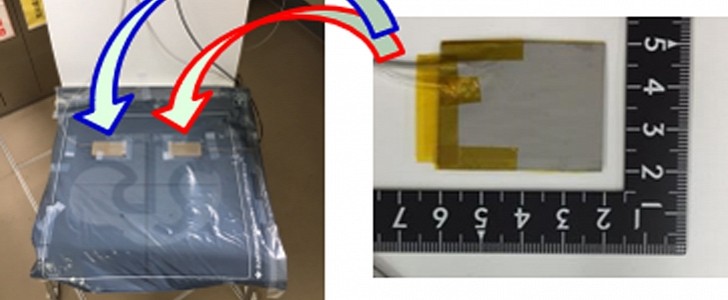Driver monitoring systems are specifically supposed to tell if the person behind the wheel is intoxicated or impaired have been around for a while, and most of them use a very similar and somewhat accurate approach.
They rely on cameras whose main role is to monitor the driver’s face and eyes for any possible signs of drowsiness. More advanced implementations also employ exterior cameras supposed to keep an eye on how the car moves on the road, triggering an alarm when vehicle swaying is detected.
But researchers at Japan's National Institute of Advanced Industrial Science and Technology claim all these systems come with major drawbacks, no matter if they use interior or exterior cameras. Things like mud or bad weather, as well as total darkness, could make them less accurate, they emphasize.
This is why their idea would theoretically allow for increased detection accuracy.
The researchers have created a smart car seat equipped with heat-resistant and pressure-detecting sensors specifically supposed to tell if a driver is drowsy or is impaired.
The sensors are installed in the backrest or the seat, and their role is to monitor the driver and collect information like heart rate and respiration, as well as to keep an eye on their posture and issue a warning if they lean on either side.
This concept can be used on the next-generation cars for even more advanced implementations that would allow for automatic actions based on certain triggers. For example, a self-driving car detecting an impaired passenger can automatically call emergency responders, while smart vehicles can tell the driver to pull over in case of intoxication.
The researchers have designed special piezoelectric sensors that can work at high temperatures and therefore match the requirements to be used on cars. To do this, they created a special design to protect the system and allow for temperatures of up to 250 F (121 C).
“The researchers prepared zinc oxide-based films directly on a polyimide surface and then screen-printed a silver paste on both sides to obtain a piezoelectric sheet. They connected a coaxial cable to detect changes in electrical charge with pressure and then folded the sheet in half around the cable,” a paper published in ACS Applied Electronic Materials reads.
The entire paper detailing the heat-resistant piezoelectric sheet sensors is available here.
But researchers at Japan's National Institute of Advanced Industrial Science and Technology claim all these systems come with major drawbacks, no matter if they use interior or exterior cameras. Things like mud or bad weather, as well as total darkness, could make them less accurate, they emphasize.
This is why their idea would theoretically allow for increased detection accuracy.
The researchers have created a smart car seat equipped with heat-resistant and pressure-detecting sensors specifically supposed to tell if a driver is drowsy or is impaired.
The sensors are installed in the backrest or the seat, and their role is to monitor the driver and collect information like heart rate and respiration, as well as to keep an eye on their posture and issue a warning if they lean on either side.
This concept can be used on the next-generation cars for even more advanced implementations that would allow for automatic actions based on certain triggers. For example, a self-driving car detecting an impaired passenger can automatically call emergency responders, while smart vehicles can tell the driver to pull over in case of intoxication.
The researchers have designed special piezoelectric sensors that can work at high temperatures and therefore match the requirements to be used on cars. To do this, they created a special design to protect the system and allow for temperatures of up to 250 F (121 C).
“The researchers prepared zinc oxide-based films directly on a polyimide surface and then screen-printed a silver paste on both sides to obtain a piezoelectric sheet. They connected a coaxial cable to detect changes in electrical charge with pressure and then folded the sheet in half around the cable,” a paper published in ACS Applied Electronic Materials reads.
The entire paper detailing the heat-resistant piezoelectric sheet sensors is available here.






